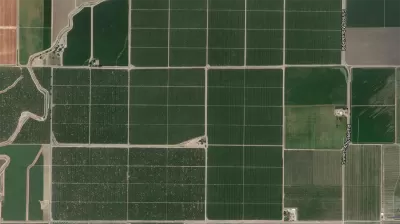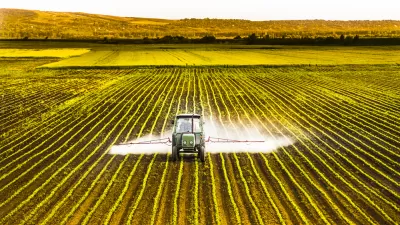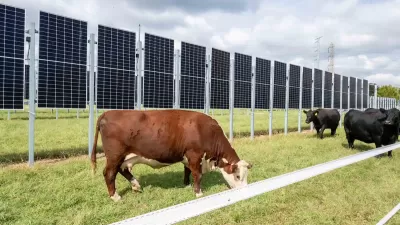Over the span of history, agricultural uses have released nearly as much carbon into the atmosphere as actual deforestation. New problem areas are still appearing in places like Brazil.

By depleting carbon stored in soil, agriculture has had a greater impact on the climate than previously supposed. According to a recent study, "land use changes associated with planting crops and grazing livestock have caused a loss of 133 billion tons of carbon from soil worldwide over the last 12,000 years, amounting to about 13 years of global emissions at their current levels."
Previous estimates, which were lower, relied on simple multiplication based on single-plot samples. This time, Chelsea Harvey writes, "the researchers were able to employ a large data set containing specific information on different soils from all around the world."
In places with "mature" agricultural economies, carbon losses from soil have been mitigated to a degree. "On a global scale, soil carbon losses have been speeding up since the industrial revolution, particularly in the 19th century. In the past 100 years, losses have tapered slightly, but still remain high, with the most significant emissions coming from new-world countries, such as Brazil, where large-scale agriculture is still expanding."
Harvey suggests that the study's findings could help pinpoint where sustainable land management techniques could do the most good, restoring carbon lost from soil to the ground.
FULL STORY: This is why when you talk about climate change, you can’t ignore agriculture

Maui's Vacation Rental Debate Turns Ugly
Verbal attacks, misinformation campaigns and fistfights plague a high-stakes debate to convert thousands of vacation rentals into long-term housing.

Planetizen Federal Action Tracker
A weekly monitor of how Trump’s orders and actions are impacting planners and planning in America.

In Urban Planning, AI Prompting Could be the New Design Thinking
Creativity has long been key to great urban design. What if we see AI as our new creative partner?

King County Supportive Housing Program Offers Hope for Unhoused Residents
The county is taking a ‘Housing First’ approach that prioritizes getting people into housing, then offering wraparound supportive services.

Researchers Use AI to Get Clearer Picture of US Housing
Analysts are using artificial intelligence to supercharge their research by allowing them to comb through data faster. Though these AI tools can be error prone, they save time and housing researchers are optimistic about the future.

Making Shared Micromobility More Inclusive
Cities and shared mobility system operators can do more to include people with disabilities in planning and operations, per a new report.
Urban Design for Planners 1: Software Tools
This six-course series explores essential urban design concepts using open source software and equips planners with the tools they need to participate fully in the urban design process.
Planning for Universal Design
Learn the tools for implementing Universal Design in planning regulations.
planning NEXT
Appalachian Highlands Housing Partners
Mpact (founded as Rail~Volution)
City of Camden Redevelopment Agency
City of Astoria
City of Portland
City of Laramie




























